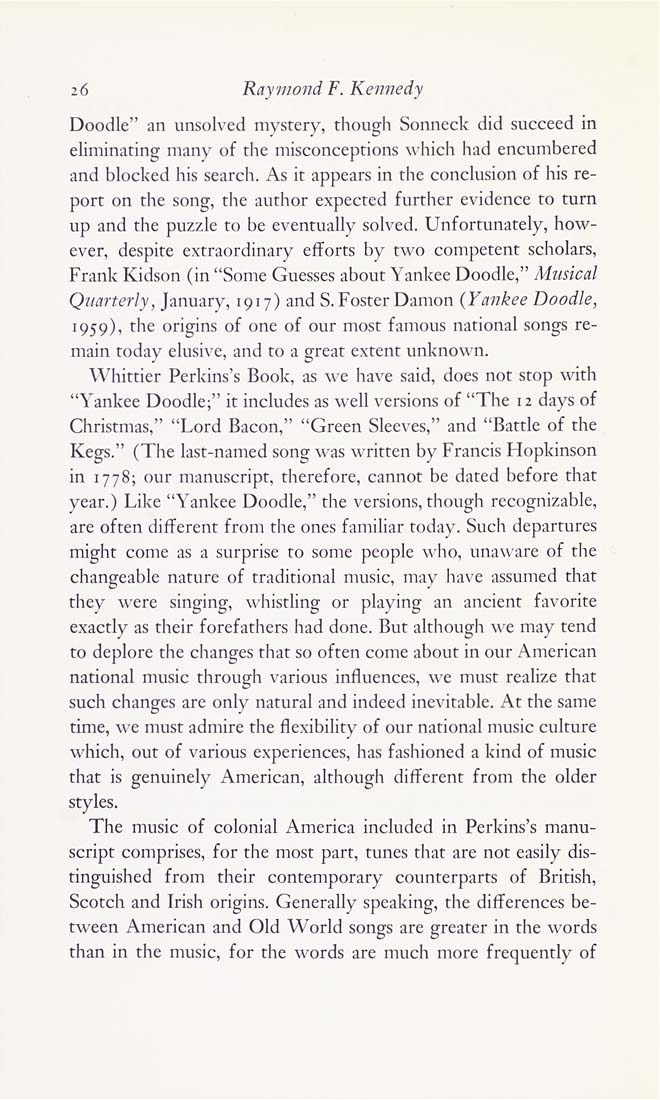Columbia Library columns (v.15(1965Nov-1966May))
(New York : Friends of the Columbia Libraries. )
|
||
|
|
|
|
| v.15,no.3(1966:May): Page 26 |

i6 Raymond F.Kennedy
Doodle" an unsolved mystery, though Sonneck did succeed in
ehminating many of the misconceptions which had encumbered
and blocked his search. As it appears in the conclusion of his re¬
port on the song, the author expected further evidence to turn
up and the puzzle to be eventually solved. Unfortunately, how¬
ever, despite extraordinary efforts by two competent scholars,
Frank Kidson (in "Some Guesses about Yankee Doodle," Musical
Quarterly, January, 1917) and S. Foster Damon {Yankee Doodle,
1959), the origins of one of our most famous national songs re¬
main today elusive, and to a great extent unknown.
Whittier Perkins's Book, as we have said, does not stop with
"Yankee Doodle;" it includes as well versions of "The 12 days of
Christmas," "Lord Bacon," "Green Sleeves," and "Battle of the
Kegs." (The last-named song was written by Francis Hopkinson
in 1778; our manuscript, therefore, cannot be dated before that
year.) Like "Yankee Doodle," the versions, though recognizable,
are often different from the ones familiar today. Such departures
might come as a surprise to some people who, unaware of the
changeable nature of traditional music, may ha\'e assumed that
they were singing, whistling or playing an ancient favorite
exactly as their forefathers had done. But although we may tend
to deplore the changes that so often come about in our American
national music through various influences, we must realize that
such changes are only natural and indeed inevitable. At the same
time, we must admire the flexibihty of our national music culture
which, out of various experiences, has fashioned a kind of music
that is genuinely American, although different from the older
styles.
The music of colonial America included in Perkins's manu¬
script comprises, for the most part, tunes that are not easily dis¬
tinguished from their contemporary counterparts of British,
Scotch and Irish origins. Generally speaking, the differences be¬
tween American and Old World songs are greater in the words
than in the music, for the words are much more frequently of
|
| v.15,no.3(1966:May): Page 26 |







